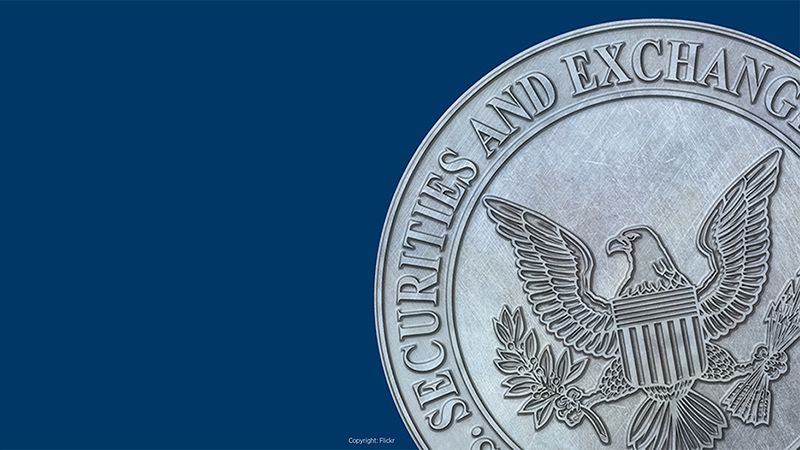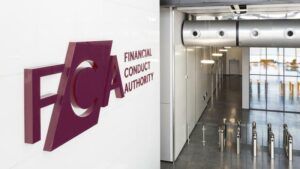The acting chair of the US Securities and Exchange Commission, Mark T. Uyeda, has openly questioned plans to adopt the Enhancement and Standardization of Climate-Related Disclosures for Investors rule, stating “it is deeply flawed and could inflict significant harm on the capital markets and our economy”.
Uyeda said the “recent change in the composition of the Commission, and the recent Presidential Memorandum regarding a Regulatory Freeze” as reasons for his request to postpone legal proceedings against the rule, pending the discussion of “appropriate next steps” in these cases.
In the wake of prior chair, Gary Gensler, resigning in January, Uyeda was nominated to serve as the Commission’s acting chair until the Senate votes to confirm President Trump’s nominee, Paul Atkins.
Plans to adopt the climate-related disclosure rules were unveiled last March, requiring registered firms to disclose their material climate-related risks alongside activities to mitigate or adapt to such risks, and information about board oversight. This would have included the disclosure of short- and long-term physical climate risks to assets from weather events such as hurricanes, as well as information on purchases of carbon offsets, renewable energy credits and other climate-related spending.
Larger registrants would also have been required to report certain ‘material’ greenhouse gas emissions, and, beginning in 2026, businesses who deem this information material or relevant would also have been required to disclose their Scope 1 and Scope 2 emissions.
However, the final rule was subject to multiple lawsuits, including from 25 Republican state attorneys general, which were consolidated in the Eighth Circuit court.
“The Commission’s briefs previously submitted in the cases consolidated in the Eighth Circuit do not reflect my views,” explained Uyeda. “The briefs defend the Commission’s adoption of the rule, but I continue to question the statutory authority of the Commission to adopt the rule, the need for the rule, and the evaluation of costs and benefits. I also question whether the agency followed the proper procedures under the Administrative Procedure Act to adopt the rule.”
“Both Commissioner [Hester] Peirce and I voted against the Rule’s adoption”, Uyeda added, with Peirce having argued “only a mandate from Congress should put us in the business of facilitating the disclosure of information not clearly related to financial returns.”
The SEC received “many submissions” urging that the Rule not be adopted during the comment period, according to Uyeda, with reasons including the large volume of financially immaterial information required to comply, that financially material climate-related risks were already subject to disclosure under existing rules and that the proposed rules overstepped the SEC’s regulatory authority.
However, according to an analysis by Ceres, 100% of investors that commented on the proposed rule — representing nearly $50trn in assets under management — supported qualitative, standardised disclosures in line with those of the Taskforce on Climate-related Financial Disclosures, while 97% supported disclosure of greenhouse gas emissions.
Rescinding this rule ‘would be a significant setback’
Speaking to PA Future, Bryan McGannon, the US Sustainable Investment Forum’s managing director, said that talk of the SEC discussing “appropriate next steps” is clearly a signal that they intend to end the rule through the court process.
“They don’t want to have to unwind the rule by writing another rule, which is a lengthy and time-consuming process. The reality is that you need three votes to move anything in the Commission, and they’re at a stalemate right now. So, they’re basically buying time so that when Atkins does get confirmed, then they can have a vote to direct their legal counsel to settle the case or to stop defending it, which means giving up and allowing the challengers to win.
“It’s conventional wisdom that this administration does not want this rule to stand.”
The Sierra Club and the Sierra Club Foundation also initially filed a lawsuit against the SEC over the rule, accusing it of “capitulating” to industry lobbyists by rolling back emissions disclosure requirements. The lawsuit was subsequently withdrawn on 31 May 2024.
Alongside other organisations, the Sierra Club also filed an amicus brief in defence of the SEC’s authority to issue the climate risk disclosure rule in August.
Speaking about SEC acting chair Uyeda’s statement, Ben Cushing, sustainable finance campaign director at the Sierra Club, said: “The SEC has full legal authority to require climate risk disclosures to protect investors and improve market transparency. Rescinding this rule would be a significant setback, further isolating the US on the global stage as climate-related financial risks continue to grow. The climate crisis and the transition to net zero are already reshaping the economy, and jurisdictions from California to the European Union to countries across Asia are moving forward with disclosure requirements — meaning that many companies will report this information regardless. The SEC’s retreat will only make capital markets less efficient and allow corporate polluters to conceal risks from investors.
“It’s also worth remembering that by statute, the SEC is an independent regulatory agency, so it’s disturbing to see the acting chair cite President Trump’s broad deregulatory efforts as a motivation for abandoning the climate risk disclosure rule. Investors and the American people need regulators to fulfill their duties, not enact radical ideological agendas.”








